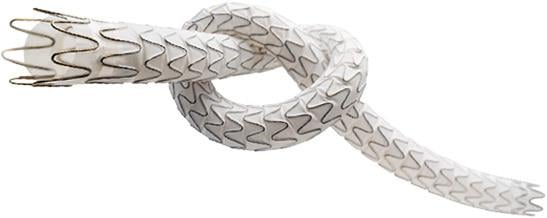
October 8, 2019 — PQ Bypass Inc. announced it has received full approval of its investigational device exemption (IDE) trial of the company’s Torus stent graft. The novel stent graft platform is designed for the treatment of peripheral artery disease (PAD) in the superficial femoral artery (SFA). By acquiring early U.S. Food and Drug Administration (FDA) feedback through the pre-submission process, the TORUS-2 study (The PQ Bypass pivOtal IDE intra-aRterial stent graft study for occlUsive and re-Stenotic fem-pop revascularization) is the company’s second IDE approved in less than two years and is the first pivotal IDE for an SFA stent graft since Viabahn received initial premarket approval (PMA) in 2005.
The TORUS-2 IDE approval comes close on the heels of the approval for the DETOUR-2 trial. Having been exposed to the Torus stent graft in the context of the DETOUR procedure, increasing demand is being vocalized to get this same stent graft studied for its safety and efficacy within the SFA as an intra-arterial stent graft.
Read the article "PQ Bypass Effective in Treating Extremely Long SFA Lesions at 12 Months"
PAD, left under- or untreated, can deteriorate the body’s vascular system to the point of rest pain, amputation and even death. Current therapies, such as balloon angioplasty, atherectomy and bare metal stents, frequently do not provide satisfactory long-term patency and will often require cyclical re-treatment. Stent grafts, unlike bare metal stents, aid in halting the progression of PAD, rather than solely treating the symptoms and allowing the disease to advance.
The company will begin enrolling in the prospective, single-arm, global multicenter study in Q4 of 2019. The study has been approved to enroll up to 188 subjects at up to 40 sites. The Torus stent graft received CE Mark as a part of the DETOUR procedure in 2017.
For more information: www.pqbypass.com


 January 05, 2026
January 05, 2026 









